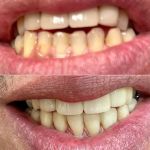What to Do if Your Tooth Falls Out: Immediate Actions
Have you ever had the terrifying experience of a tooth falling out unexpectedly? It’s more common than you might think, and knowing what to do can make all the difference. Whether it’s caused by an accident, sports injury, or an underlying dental issue, a lost tooth can be alarming. But fear not! I’m here to guide you through the essential steps to take if your tooth falls out, helping you act quickly and properly to save the tooth, reduce pain, and avoid further complications.
1. Stay Calm and Assess the Situation
When your tooth falls out, the first thing you need to do is remain calm. Panicking won’t help, and it’s important to stay composed in order to handle the situation effectively. If you’re in a safe environment, take a moment to inspect the tooth and the area where it fell out. Is it a permanent tooth or a baby tooth? Permanent teeth require immediate attention, while a baby tooth might not need the same urgent care.
2. Retrieve the Tooth Carefully
If it’s a permanent tooth that has fallen out, it’s crucial to find it right away. Carefully pick it up by the crown (the top part of the tooth), avoiding touching the root. The root is delicate and can be damaged easily, which could make reimplanting the tooth impossible. Rinse it gently with water to remove any dirt or debris, but do not scrub or use soap. Avoid using any harsh chemicals on the tooth.
3. Keep the Tooth Moist
The next step is keeping the tooth moist. The cells on the root need to stay alive to increase the chances of saving the tooth. If possible, place the tooth back into its socket, making sure it is facing the right way. Gently bite down on a clean cloth to hold the tooth in place. If that’s not possible, place the tooth in a glass of milk or your own saliva. Avoid storing the tooth in water, as this can damage the root cells.
4. Seek Immediate Dental Care
Once you have secured the tooth, time is of the essence. Visit a dentist immediately, ideally within 30 minutes to an hour. The quicker you get to a dental professional, the better the chances of successfully reimplanting the tooth. If you are unable to see a dentist right away, consider visiting an emergency room. Some medical professionals are trained to help with dental emergencies.
What Happens at the Dentist’s Office?
When you arrive at the dentist’s office, they will assess the situation and decide the best course of action. If the tooth is a good candidate for reimplantation, they will gently place it back into the socket and may splint it to adjacent teeth for support. In some cases, the dentist may choose to perform a root canal treatment to prevent infection and promote healing.
5. Aftercare and Follow-Up
After the tooth is reimplanted, you will likely need to follow a few specific care instructions. These might include taking antibiotics to prevent infection, avoiding certain foods, or practicing gentle oral hygiene to ensure the area remains clean. Your dentist will also schedule follow-up appointments to monitor the healing process. It’s important to attend these visits to ensure everything is progressing well.
6. What If the Tooth Can’t Be Saved?
In some cases, despite the best efforts, the tooth may not be salvageable. If this happens, don’t be discouraged—there are several options for tooth replacement. Your dentist will discuss treatments such as dental implants, bridges, or dentures, depending on your individual needs. Each option has its own set of advantages and disadvantages, and your dentist will help you choose the best solution for your lifestyle and budget.
Preventing Tooth Loss: Tips for Healthy Teeth
While accidents can happen to anyone, there are steps you can take to minimize the risk of losing a tooth in the first place. Here are some practical tips for keeping your teeth healthy and strong:
- Wear a Mouthguard: If you play contact sports, a mouthguard can protect your teeth from trauma. This is especially important for kids and adults who participate in high-risk activities like football, basketball, or martial arts.
- Maintain Good Oral Hygiene: Regular brushing, flossing, and dental check-ups are essential for preventing tooth decay and gum disease, which can weaken teeth and lead to tooth loss.
- Eat a Balanced Diet: Eating a diet rich in calcium and other nutrients helps strengthen your teeth and bones. Avoid sugary foods and drinks that can contribute to tooth decay.
- Address Dental Issues Early: If you experience tooth pain or sensitivity, visit your dentist promptly. Catching problems early can prevent more serious issues that could lead to tooth loss.
7. Real-Life Stories: Tooth Trauma and Recovery
I remember a time when a close friend of mine, Mike, lost his tooth during a weekend basketball game. He was playing defense when an opponent accidentally elbowed him in the mouth. Mike’s tooth was knocked out completely, and he was in a lot of pain. Fortunately, he had read up on emergency dental care, so he knew exactly what to do. He picked up the tooth carefully, rinsed it off, and placed it in a glass of milk. He rushed to the dentist, who successfully reimplanted the tooth. Mike was relieved, and his tooth healed beautifully, all thanks to his prompt action and the expertise of his dentist.
Final Thoughts: Take Action and Stay Prepared
Tooth loss can be a traumatic experience, but with the right knowledge and quick action, many cases are reversible. If your tooth falls out, remember to stay calm, keep the tooth moist, and get to a dentist as soon as possible. By acting quickly and seeking professional help, you can increase the chances of saving your tooth and returning to your regular routine without missing a beat.







 TK Dental Wayne, NJ | General, Cosmetic, Restorative Dentists. Dental Implants, Crowns, Bridges | Tatyana Kaminar DDS4.0 (139 review)
TK Dental Wayne, NJ | General, Cosmetic, Restorative Dentists. Dental Implants, Crowns, Bridges | Tatyana Kaminar DDS4.0 (139 review) The Dental Center of Eagan4.0 (107 review)
The Dental Center of Eagan4.0 (107 review) Rainier Dental4.0 (198 review)
Rainier Dental4.0 (198 review) Plainfield Dental4.0 (171 review)
Plainfield Dental4.0 (171 review) Parkland Pacific Dental4.0 (88 review)
Parkland Pacific Dental4.0 (88 review) Jared Berger DMD3.0 (4 review)
Jared Berger DMD3.0 (4 review) The Importance of Oral Health Education During Pregnancy for a Healthy Pregnancy
The Importance of Oral Health Education During Pregnancy for a Healthy Pregnancy Best Tips for Brushing Your Teeth Properly for Healthy Gums: Essential Techniques for Oral Health
Best Tips for Brushing Your Teeth Properly for Healthy Gums: Essential Techniques for Oral Health Why Skipping Dental Checkups Can Lead to Bigger Oral Health Problems
Why Skipping Dental Checkups Can Lead to Bigger Oral Health Problems Advantages of Porcelain Dental Restorations
Advantages of Porcelain Dental Restorations How Can Diabetes Cause Tooth and Gum Problems? Preventing and Managing Oral Health Issues
How Can Diabetes Cause Tooth and Gum Problems? Preventing and Managing Oral Health Issues Healthy Habits for Promoting Good Oral Health and Hygiene: Tips for a Healthy Smile
Healthy Habits for Promoting Good Oral Health and Hygiene: Tips for a Healthy Smile